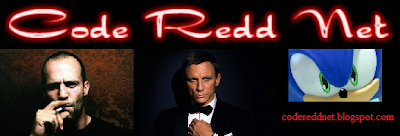Shanghai Girls is a novel about two sisters living in Shanghai at its pre-WWII peak, working as model girls for an ad painter. They are just becoming adults, and are stuck between the cosmopolitan lifestyle of modern Shanghai and the customs of their parents. Similar to the stories of the mothers in The Joy Luck Club, turmoil strikes and they are forced to make their way as immigrants to the United States, or more specifically, San Francisco. However, this book goes much deeper into the Chinese immigration experience and is a better story for it. Indeed, the sense of history Lisa See provides the reader is the most charming part about the novel. We feel the struggle and pain of the characters, who have to go through hell just to live in a land where they are treated perpetually as foreigners and with suspicion. They have to live cautiously as not to be accused of being Mao sympathizers. I am ignorant of the factual history that Chinese immigrants of this period faced, but if Ms. See's fiction could be considered accurate then it is masterfully told. BUT, and this is a big "but" for it is all-caps, the novel's non-ending left me with such a bad taste in my mouth that I can hardly recommend it or even suggest it without placing this large caveat on it. It was as if the author felt like the story was getting long enough and just chose to end it. If the condition of literary blue balls exists, then this novel surely causes it. Needless to say, I felt quite a sense of let down with the author. I have followed her for 300 plus pages, forsaking all other reading materials to read her story. Why would she sell herself short and call this a finished work? Thus, if I can summarize this work, it is an interesting and graphic dramatization of the Shanghai of the period and the Chinese immigrant experience. It has hiccups with predictable circumstances that try to be passed off as dramatic revelations and issues with some slow sections that don't contribute to the overall plot and test the reader's attention. The non-ending cannot be merely brushed off as something to let the reader fill in the blanks. There is just too much left untold. It is difficult to recommend as a novel, and I need to do my own research before being able to pass it off as an educational tool if one wishes to learn about the period.


No comments:
Post a Comment
You're on the mike, what's your beef?